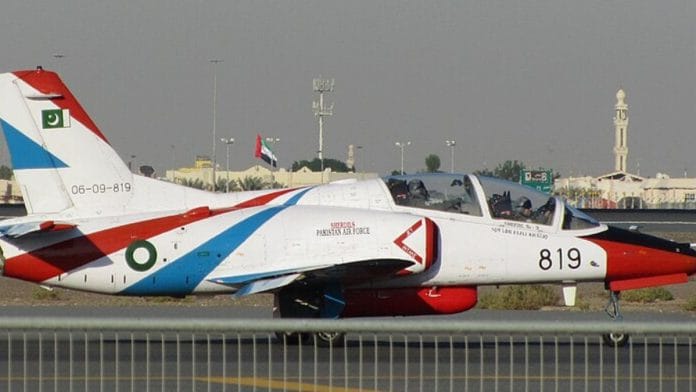New Delhi: Pakistan has signed an agreement to supply $1.5 billion worth of military equipment to the Sudanese Armed Forces (SAF), the internationally sanctioned military junta fighting to control the war-torn north-east African country. The deal, believed to be paid for by a third nation, will give the regime of General Abdel Fattah al-Burhan access to light attack aircraft, engines, armoured fighting vehicles and a range of unmanned aerial vehicles.
The deal was signed during a visit to Islamabad by ‘Pilot’ El Tahir Mohamed El Awad El Amin, the head of the SAF’s air force, during which he reportedly held talks with Pakistan’s defence minister, air force chief, and other senior military figures.
Islamabad’s planned arms sales will draw it into a toxic competition between Saudi Arabia and the United Arab Emirates, as well as a maze of Western sanctions designed to end the civil war.
According to Swiss government sanctions, El Amin was responsible for the indiscriminate aerial bombing carried out by the air force of the SAF in densely populated residential areas, notably in Khartoum, Omdurman, Nyala (South Darfur) and North Kordofan, documented by the United Nations Integrated Transition Assistance Mission in Sudan.
The indiscriminate air strikes, the sanctions documents reveal, caused the “destruction of critical infrastructures, including medical facilities such as the East Nile Hospital in Khartoum in May 2023 and the Babiker Nahar Paediatric Hospital in El-Fasher in May 2024”.
Earlier this year, the United States Treasury Department also imposed sanctions on the head of the SAF, Al-Burhan, holding that he had command responsibility for “lethal attacks on civilians, including airstrikes against protected infrastructure including schools, markets, and hospitals”. The SAF is also held responsible for the routine and intentional denial of humanitarian access, using food deprivation as a war tactic.
The Treasury Department had also indicted Ahmed Abdalla, a Sudanese-Ukrainian dual national, for routing Iranian-made UAVs through Azerbaijan to the SAF through his Hong Kong based firm, Portex.
An arms embargo and asset freeze is also in place against both sides, enforced by the UN Security Council. However, both sides have continued to receive supplies of arms through third countries, while the Rapid Support Forces is alleged to have been using mercenaries recruited on its behalf by the UAE from Colombia.
Fuelled by competition between Saudi Arabia and the UAE, the conflict in Sudan, which began in 2023, has claimed more than 70,000 lives, and left several hundred thousand people on the edge of starvation.
The Kingdom of Saudi Arabia has backed the SAF, hoping to shut out Iran, and also bring stability to the Red Sea, where instability directly threatens key projects, like the city of Neom, and Yanbu Terminal expansion, which aims to diversify oil export routes away from the Strait of Hormuz, expert Elfadil Ibrahim explains.
For its part, the UAE seeks to block jihadist groups, who were overthrown in 2019, from riding on the SAF’s back to retake power.
The Pakistani supplies—10 K8 Karakorum light attack aircraft, engines for MiG21 aircraft, HQ-9 and HQ-6 air defence systems, armoured fighting vehicles, and hundreds of various kinds of drones—would give a significant edge to the junta.
Large numbers of countries, including India and Pakistan, had participated in UN peacekeeping operations in Sudan, which concluded in 2024. There have been inconclusive discussions since then on redeploying international forces to protect civilians.
(Edited by Mannat Chugh)
Also Read: Can Syria’s tiny Druze minority survive West Asia’s new storms? There’s little hope






